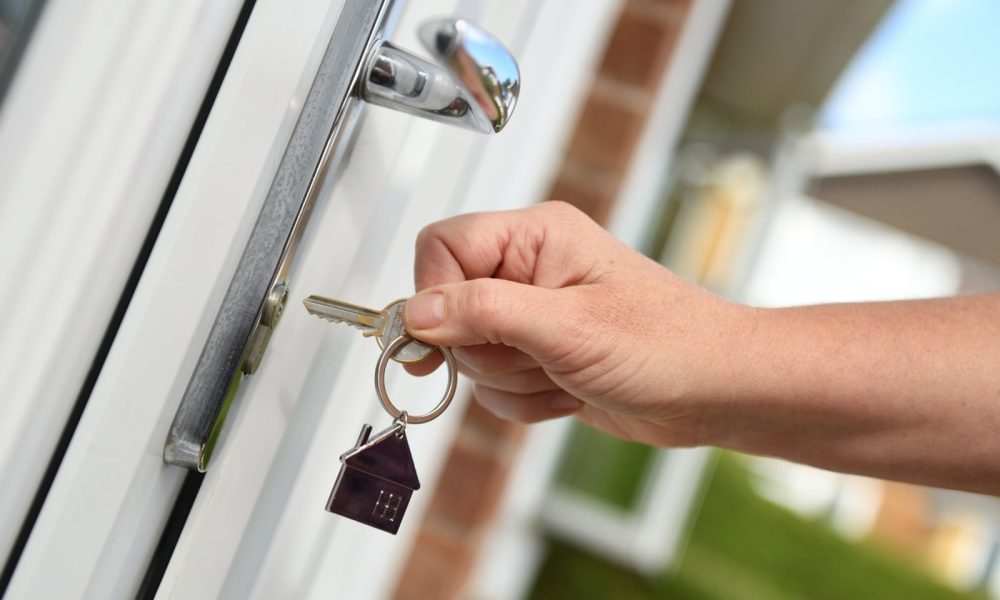As a real estate agent, you know why you love your job. Whether it’s being your own boss, earning the big bucks, or enjoying a bit of glam if you’re in the high-end market, along with all the good stuff comes the very real fact that you are operating in an industry that can be more risky than a typical nine-to-five gig. That’s why you should never disregard certain safety precautions that come with the territory. Here’s a quick update on how to incorporate key safety practices endorsed by the National Association of Realtors into your routine.
The New York Times recently reported that 90 percent of the nation’s real estate agents operate as independent contractors. According to the National Association of Realtors, 66 percent realtors are women. And Inman Select sites a survey that said 25% of female realtors were concerned with their personal safety
Set Professional Boundaries: Both Personal and Geographical
Make sure every client you interact with understands the basics of your professional boundaries, including the hours of operation, specific contact information, and getting into contact before attempting a face-to-face meeting. Professional boundaries help create a comfort zone for everyone involved and can be included on a business card or an e-mail signature. Do not provide personal information, such as personal cell phone numbers or your home address. If the client pushes for personal information, you can easily refer them to your main office number and e-mail.
- When meeting a client for the first time, select a public place if your office can’t be used and try to schedule meetings during normal business hours even if it’s Zoom or Skype, in which case, make sure you can see the person on the other end of the call.
- Try to schedule all of your property showings during daylight hours; if you must schedule after hours, during the walk through, be sure to switch on all lights as you go. Never lower blinds or shades.
- Use your own vehicle, ideally marked with the company logo. If you must rideshare, make sure that you are the driver.
- Never allow a potential client to walk behind you. Position yourself slightly behind the prospect and gesture “after you” as you introduce each area.
Self-Track Your Where-abouts and Be Emergency-Ready
Before you arrive at a showing, make a habit of checking in with someone, ideally someone who can provide aid in an emergency. This can be a co-worker, spouse or friend.
- Let your contact know your expected arrival, return time, and your client’s name.
- Keep your phone and personal items on your person at all times. Make sure your phone has been charged and can be used at a moment’s notice. Know how to speed-call for an emergency, and create a code phrase for dangerous situations that your personal and professional contacts will recognize.
- When you arrive, take a moment to surveil the scene before you get out of the car. Make sure you are in a well-lit area, your car can’t be blocked in, and look for potential risks such as a person loitering in the vicinity or if the area is unusually quiet.
- After an open house, before you leave, make sure there is no one still around by checking every room and the backyard before locking up. Be prepared to defend yourself if necessary. However, choose flight over flight to escape any immediate danger and call for help.
- For added safety when walking alone to your car, make a cell phone call to a friend. A chatting individual is less inviting to a predictor since that call could become your emergency alert.
Keep Private Info Out of Sight and Your Company Logo In Sight
Personal items such as identification, bank and credit cards, and medication, and even seemingly unimportant items such as library cards and deli reward punch cards item present personal details about yourself that could be useful to a person looking to do you harm. Never leave personal items where they may be noticed and accessible, such as on seat of your unlocked vehicle or on a table inside the property. Always wear your company name badge or logo jacket if you have one. It will help if you need assistance.
Don’t Be Afraid to Practice Bold Self Defense
Expand your idea of what self-defense means for you, keeping in mind that you are navigating a vulnerable industry. Strengthen both your mind and body to be your own best resource if faced with danger.
- Choose a physical training program such as basic self-defense, Marshal arts, or boxing and train to build and maintain your best defensive and offensive moves.
- Take a self-defense class that covers the psychology of dangerous situations, how to stay calm, how to recognize escalating circumstances, how to verbally communicate with others to diffuse tense situations, and how escape a hostile situation.
Florida Bar Board Certified in Real Estate, Attorneys David E. Klein, Esq. and Guy Rabideau at Rabideauklein.com, have been assisting some of Florida’s finest realtors with their closing contracts for over fifteen years. Their expertise and experience ensure that clients’ interests are protected throughout any type of real property transference in the State of Florida. Feel free to contact Rabideau Klein to assist you with your next sale or listing.

